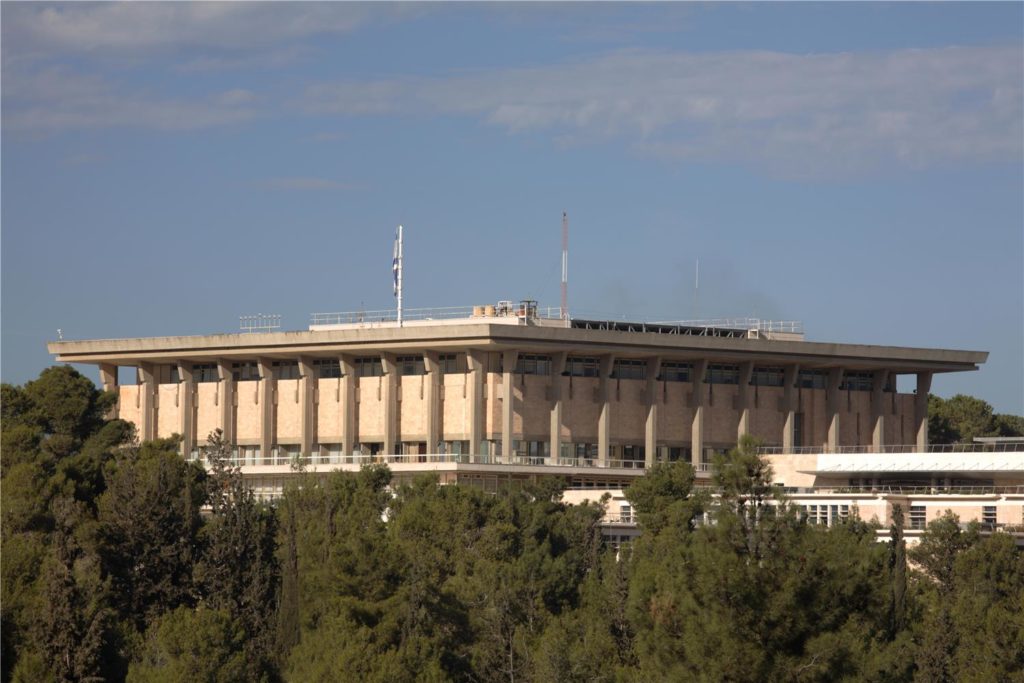FRESH AIR
Israel set to delay budget, dodge new elections
August 12, 2020 | Ahron Shapiro

Israel’s emergency national unity government, just three months old, appears to be navigating its way through a major coalition crisis – although the risk of yet another election hasn’t dissipated quite yet.
At issue is the national budget, which needs to be passed before the 100-day milestone following the formation of the government. That deadline is August 25. If a budget is not passed, the Knesset will be dissolved and Israeli Prime Minister Binyamin Netanyahu would remain the caretaker prime minister until the next election – the fourth in 19 months – which would likely be held in November.
A bill now being advanced would postpone the deadline for passing a state budget from August 25 to December 3, to allow more time to negotiate and pass a budget.
The agreement reached in April between Netanyahu and Blue and White party leader and Alternate Prime Minister Benny Gantz specified the passage of a two-year budget, as is customary. Netanyahu, however, has now demanded only a one-year budget be passed instead – a situation which would mean yet another budget would have to be passed by early next year.
While Netanyahu argues that the crisis caused by Israel’s second wave of coronavirus infections demands a short-term budget, political analysts agree that the move would give Netanyahu an advantage over Gantz by giving him two opportunities to hold new elections without having to rotate leadership with Gantz as scheduled in September 2021. Those opportunities would present themselves in a one-year budget scenario if the budget fails to pass now, or if the budget fails to pass next year.
By remaining prime minister, analysts say, Netanyahu is hoping to be shielded, to some extent, in his ongoing trial on charges of bribery, fraud and breach of trust, by some of the protections Israeli law offers uniquely to the serving prime minister in such circumstances. Actual testimony in the trial is expected to begin next January.
Israel’s Channel 12 reported on August 11 that Likud was demanding concessions and changes in the coalition with Blue and White in return for passing a two-year budget.
Coinciding with the bill to delay the budget is another bill by opposition leader Yair Lapid, which would prevent anyone indicted of serious crimes, including Netanyahu, from forming a government.
After initially threatening to vote for Lapid’s bill, in August 11, Blue and White indicated that it would simply not show up for the vote, which is expected to be held later today (Wednesday, August 12) thus passively allowing it to fail. In response, the Likud threatened to bring down the government anyway, insisting that anything less than a vote against the bill would violate the coalition agreement.
All eyes will therefore be on the Knesset later today – although most political commentary in Israel is fairly confident the bill to delay the budget will be advanced, Lapid’s bill will fail with or without Blue and White’s nay vote and the Likud will not bring down the government at this particular time, despite its threats.
Israel’s current government, the largest ever in terms of number of ministers, is nevertheless viewed as chronically unstable, as it forced together the adversarial Likud and Blue and White camps with equal distribution of ministerial portfolios and rotation of the prime minister’s office between Netanyahu and Gantz – despite the fact that Gantz saw half of his party split and remain in opposition.
As such, even if the coalition crisis over the budget is averted for now, the risk of further crises leading to a new election is expected to linger for months to come.
Update 13/08
On the evening of August 12, Lapid’s bill failed by a vote of 37 to 53 (with Blue and White not voting, as they had previously indicated, and the Likud not following through on their threat to bring down the government over this decision), while a preliminary vote on the bill to delay the budget passed by a margin 56-41.
While Wednesday’s vote was a crucial first step, the budget delay bill requires three more readings to become law. While the deadline to pass a budget looms less than two weeks away, there nevertheless remains ample time to leverage the threat of elections to maximum political effect in this elaborate game of chicken.
RELATED ARTICLES

‘Time’s up for talk’: Joel Burnie discusses Antisemitism Envoy’s report on Sky News

‘Optimism’ for Hamas to ‘exile’ their power and create a permanent ceasefire with Israel: Joel Burnie on Sky News

Australian government’s response to Iran-Israel conflict ‘disappointing’: Paul Rubenstein on Sky News




















